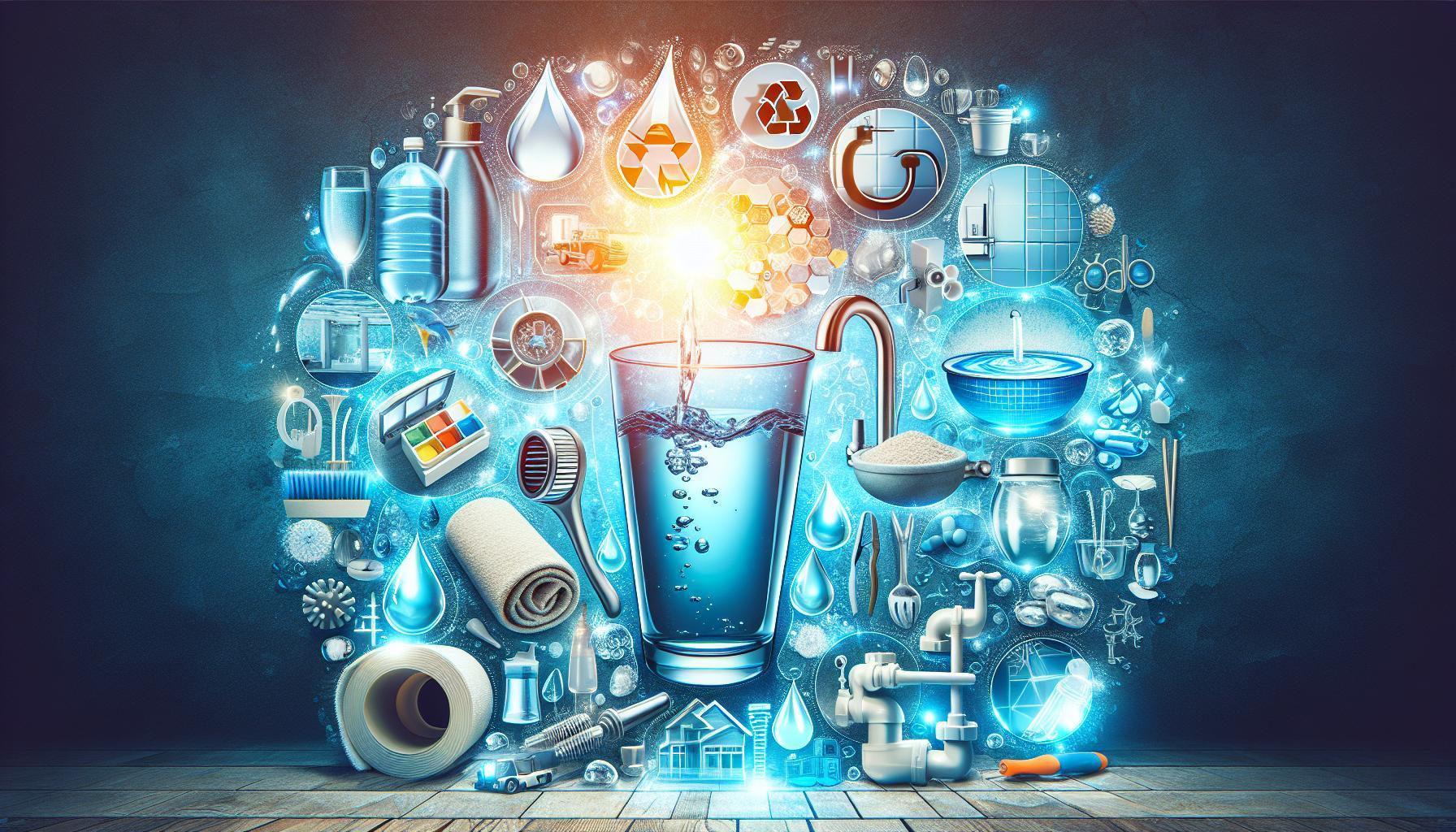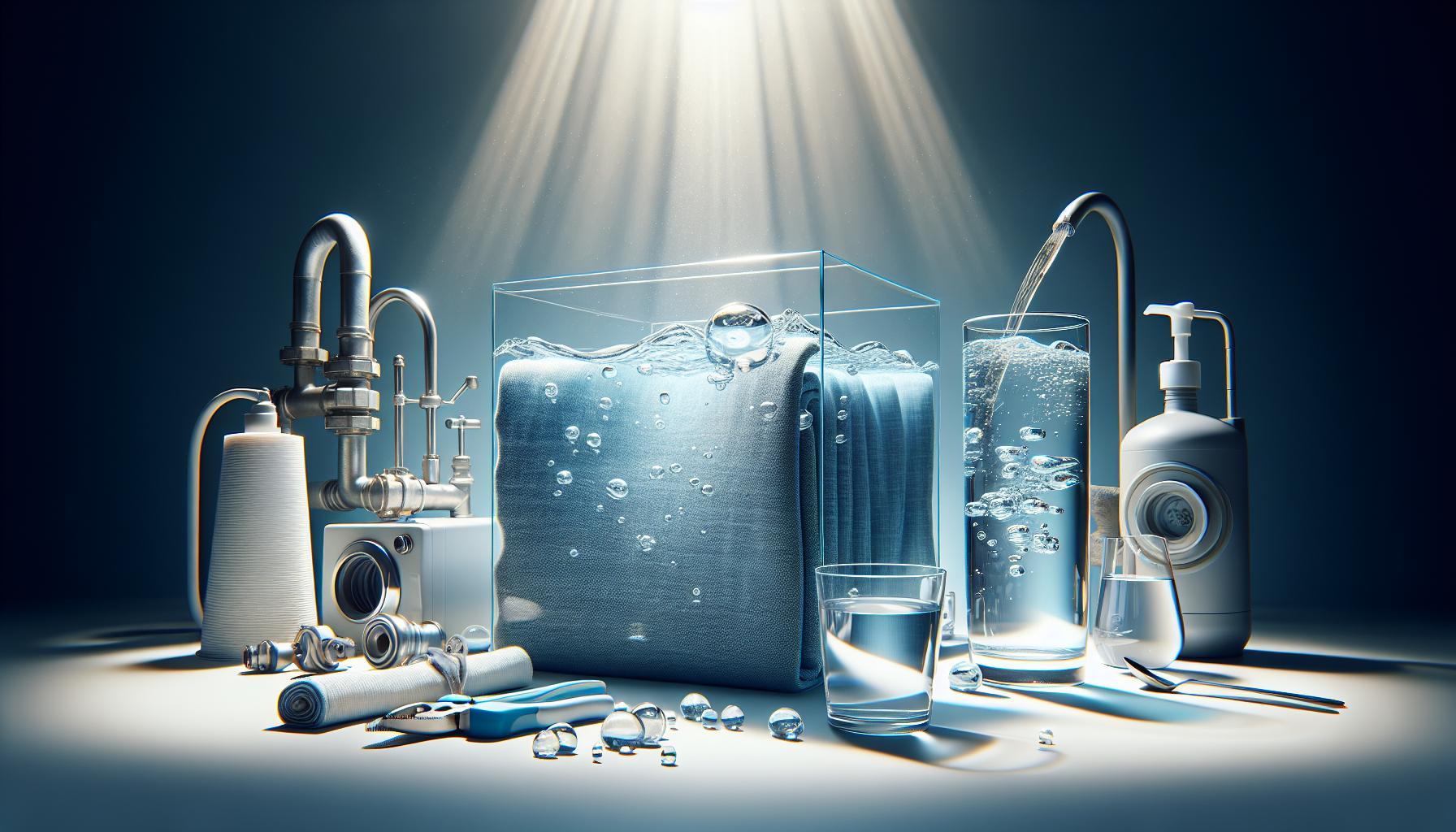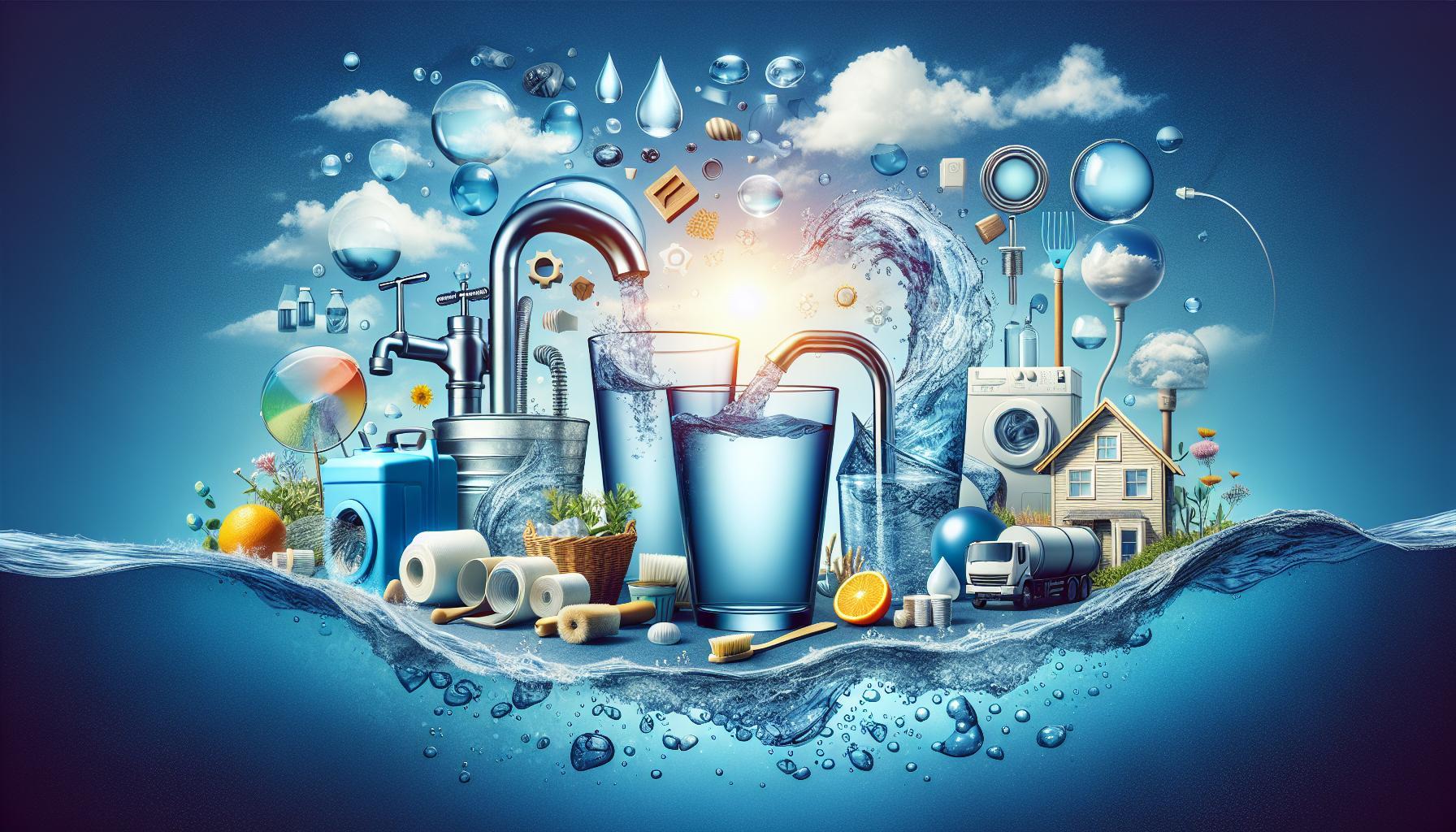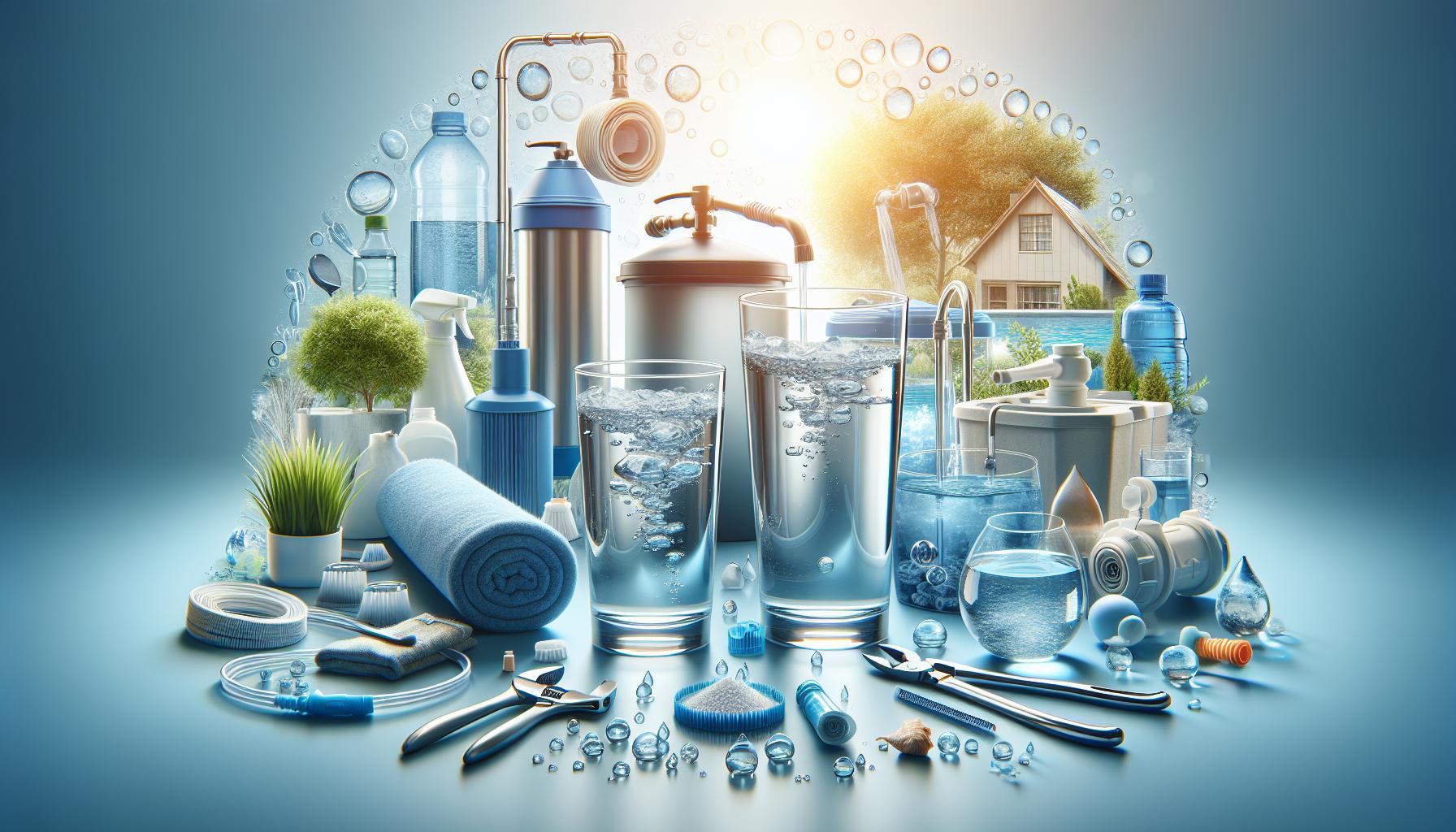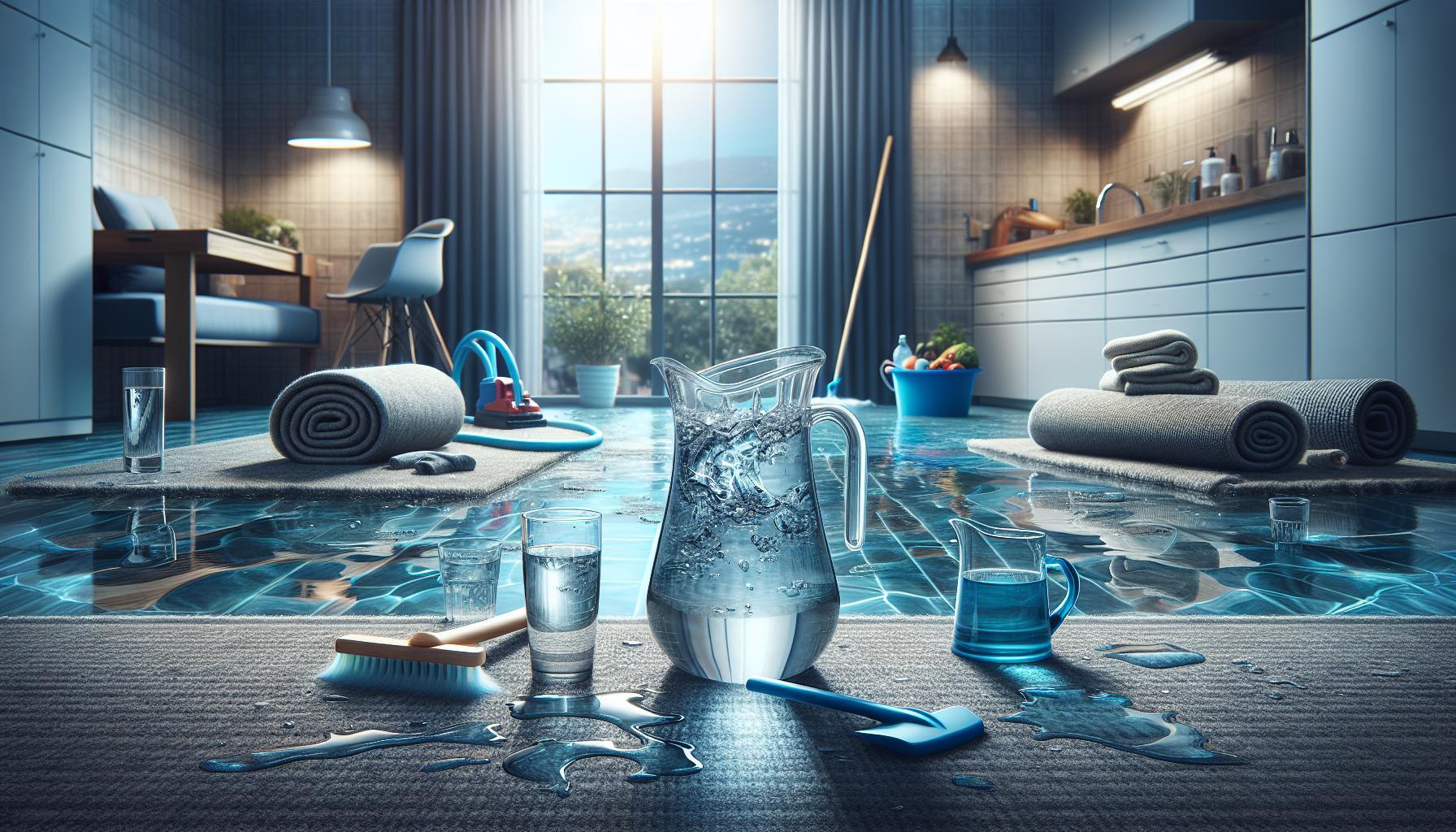Hard water stains can tarnish the beauty of your granite surfaces, leaving them dull and unappealing. These unsightly marks not only detract from the aesthetic charm but can also become more challenging to remove if left untreated. Fortunately, with the right cleaning techniques and products, you can effortlessly restore your granite’s shine and enhance your home’s overall elegance.
Understanding Hard Water Stains and Their Impact on Granite
Hard water stains are a common yet frustrating issue for granite surface owners, often diminishing the beauty and luster of these elegant countertops. These stains are typically caused by minerals, such as calcium and magnesium, that are prevalent in hard water. When water evaporates, it leaves behind these mineral deposits, which become visible as unsightly stains. Understanding the nature of hard water stains is essential for homeowners looking to maintain the pristine appearance of their granite surfaces.
What Causes Hard Water Stains?
Hard water stains on granite can result from various everyday activities, such as washing dishes, spilling water, or simply allowing water to sit. This is particularly common in regions with high mineral content in their water supply, affecting over 85% of homes in the U.S. According to the U.S. Geological Survey, this includes areas with limited rainfall or high mineral soil content, which contributes to an increased concentration of these unwanted deposits.
- Mineral buildup from evaporated water
- Frequent exposure to splashing water
- Long-standing pools of water from spills
The impact of hard water stains on granite is not just aesthetic; prolonged exposure to these deposits can lead to more significant damage over time. This includes dullness of the surface and potential etching if not addressed promptly. It’s crucial for homeowners to adopt preventive measures for cleaner and shinier granite surfaces. Regular cleaning routines using pH-balanced stone cleaners can minimize the occurrence of these stains and enhance the overall durability of the granite.
Effective Prevention and Solutions
To combat hard water stains effectively, it is vital to implement a consistent cleaning strategy. Here are some actionable steps to consider:
- Regularly wipe down surfaces: Promptly dry any spills and splashes to prevent water from evaporating on the granite.
- Use the right products: Employ pH-balanced cleaners specifically designed for granite to keep your countertops shine-free from mineral deposits.
- Consider water softeners: Installing a water softener can reduce the mineral content in your water supply, helping to prevent hard water stains from forming.
By proactively addressing the issue of hard water stains, homeowners can not only restore the shine but also ensure the longevity of their granite surfaces. Understanding these stains and their impacts leads to more informed cleaning choices, thus keeping granite countertops beautiful and resilient for years to come.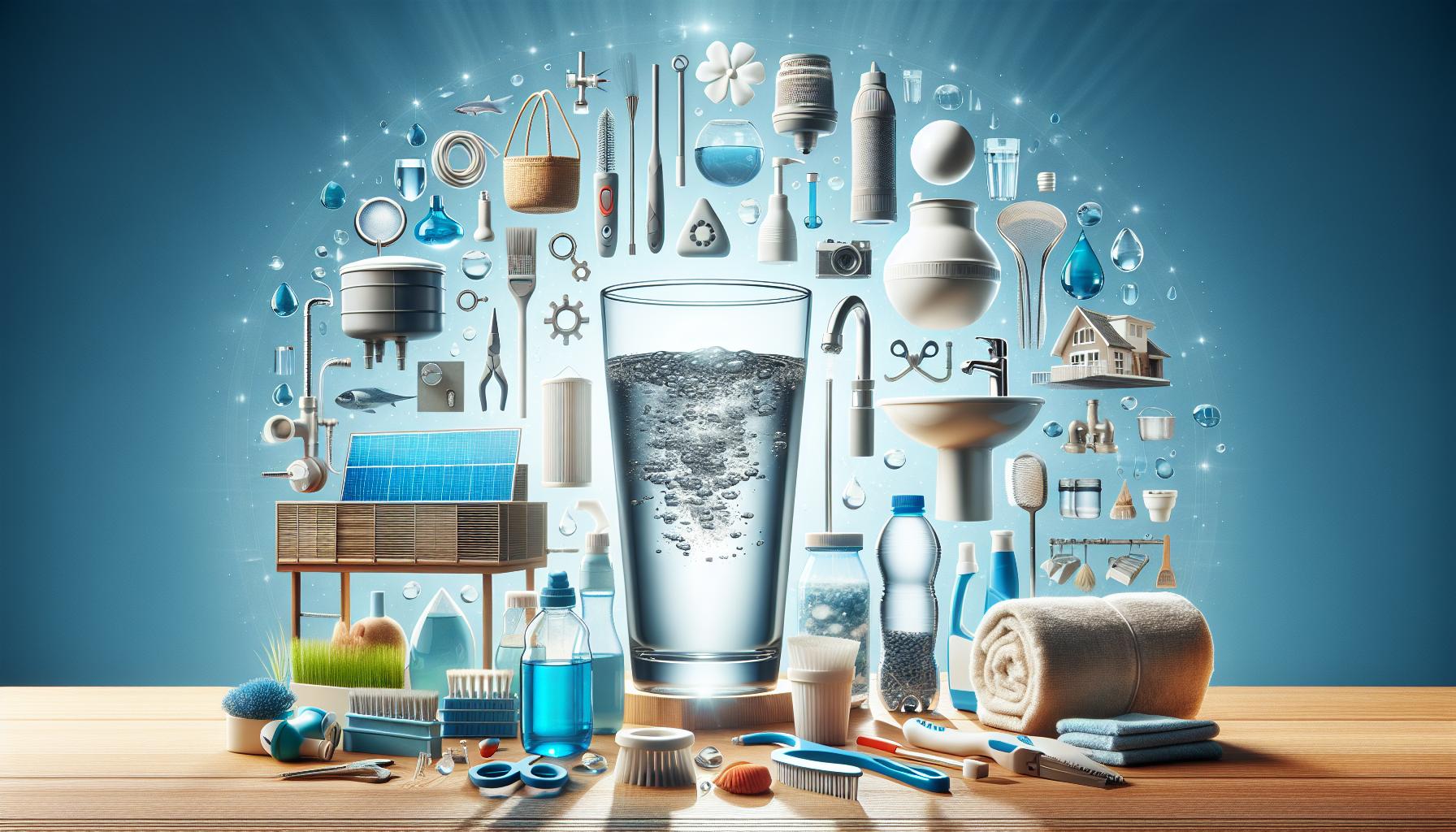
Essential Tools and Supplies for Effective Cleaning
To tackle the challenge of removing hard water stains from granite surfaces effectively, it’s essential to equip yourself with the right tools and supplies. Each cleaning job is unique, but having a solid arsenal at your disposal will streamline the process and enhance your chances of restoring that sparkling shine to your granite countertops or sinks.
Key Cleaning Supplies
When preparing to get rid of hard water stains on granite, consider gathering the following essential items:
- pH-neutral cleaner: This is vital for maintaining the integrity of granite while effectively removing stains without causing any damage.
- Baking soda: A natural abrasive that can help lift tough stains when mixed with water to create a paste.
- White vinegar: Use sparingly, as its acidity can harm the granite if left too long. It’s effective in breaking down mineral deposits.
- Pumice stone: An excellent tool for gently scrubbing away hard water stains without scratching the granite surface. Use it wet for the best results.
- Microfiber cloths: For wiping down the surfaces without leaving lint, these are perfect for achieving that final polish.
- Rubber gloves: Protect your hands while working with any cleaning solutions or abrasives.
Additional Tools for Effective Stain Removal
Beyond standard cleaning products, incorporating specialized tools can make a significant difference in your cleaning efforts:
- Scrub brushes: Soft-bristled brushes can help reach into crevices without risking damage to the granite surface.
- Sealant: After removing stains and restoring shine, applying a granite sealant will protect your surface from future stains.
- Commercial hard water stain removers: Products specifically designed for hard water stain removal can be very effective. Look for one that is safe for use on granite.
- Plastic scrapers: These help in removing stubborn deposits safely, ensuring no scratching occurs on the granite surface.
By gathering these essential tools and supplies before you start, you’re positioning yourself for success in the battle against hard water stains on granite. Whether you’re a seasoned cleaner or a novice, having the right materials will not only simplify your efforts but also lead to a sparkling, stain-free finish that rejuvenates your granite surfaces.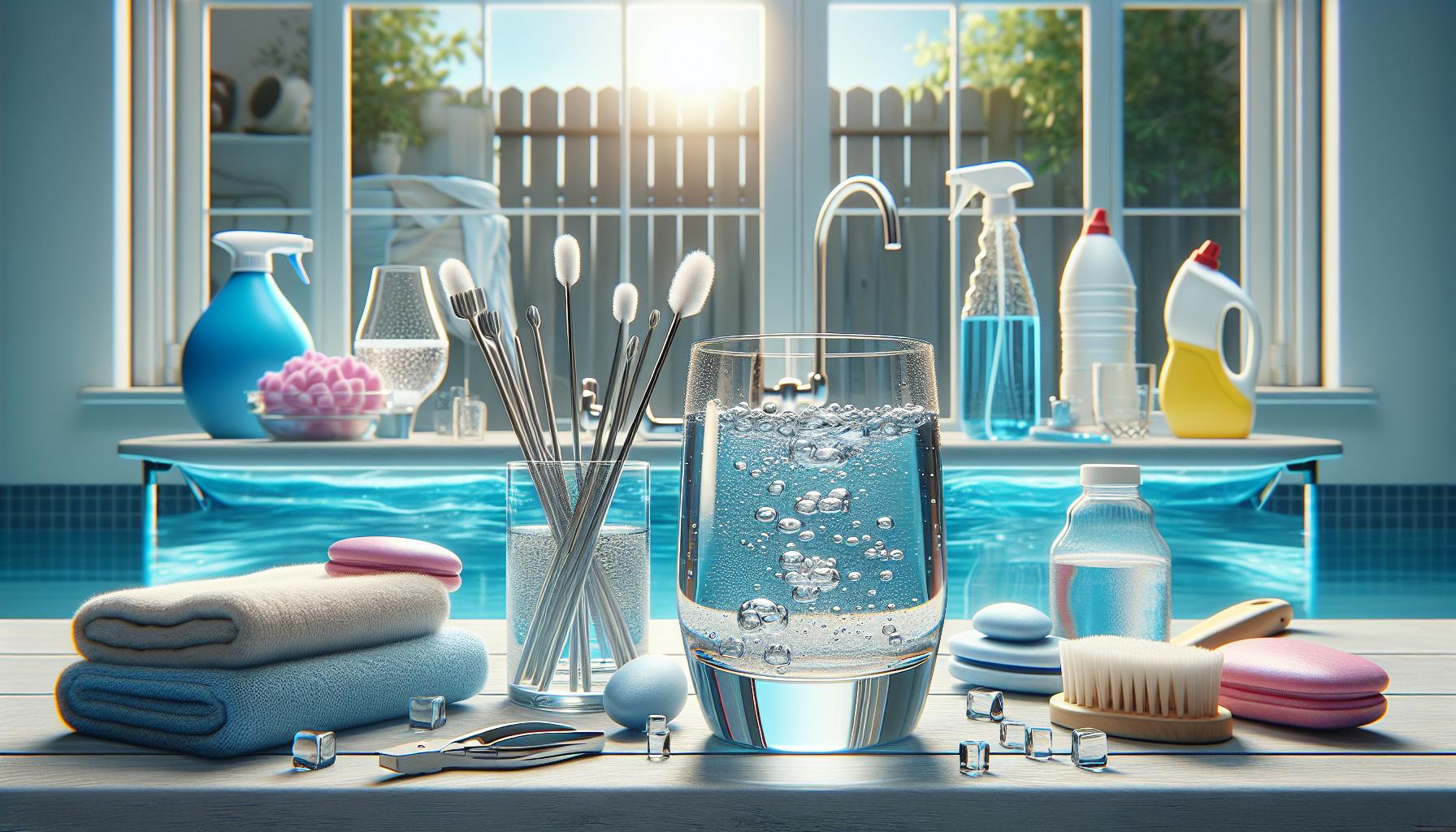
Step-by-Step Guide to Removing Hard Water Stains
Removing hard water stains from granite surfaces can seem daunting, but with the right technique, your countertops can look as pristine as the day they were installed. Hard water stains are caused by mineral deposits, typically found as white streaks or spots on your beautiful granite, diminishing its shine and appeal. The good news? You don’t need harsh chemicals or professional services to restore your granite’s luster. Follow this comprehensive guide to tackle those stubborn stains effectively.
Preparation Steps
Before you begin the cleaning process, gather your materials. You’ll need:
- Soft cloths or microfiber towels
- Baking soda
- White vinegar or lemon juice
- Water
- Sealant (for post-cleaning protection)
Ensure the granite surface is free of debris by wiping it down with a damp cloth. This step prevents scratching the surface while cleaning.
Step-by-Step Cleaning Process
- Create a Cleaning Paste: Mix baking soda with water to form a thick paste. This natural abrasive will help lift the stains without damaging the granite surface.
- Apply the Paste: Spread the baking soda paste over the hard water stains. For tougher stains, you may want to apply it a bit thickly. Allow the paste to sit for about 10-15 minutes. This time lets the baking soda break down the mineral deposits.
- Use Vinegar or Lemon Juice: After the paste has set, you can spray a small amount of vinegar or lemon juice over the baking soda. The fizzing reaction will help lift the stains even further. Be cautious—while vinegar and lemon juice are effective, excessive use can compromise your granite’s seal, so keep it to this focused application.
- Wipe and Rinse: Gently scrub the area with a soft cloth using a circular motion. Follow this by rinsing the area with warm water to remove any residue from the baking soda and vinegar. Use a clean, dry cloth to buff the granite dry.
- Apply a Sealant: To prevent future stains, consider applying a granite sealant once the surface is completely dry. This protective layer helps repel moisture and minerals, making it easier to maintain your granite’s shine.
With these steps, you can effectively get rid of hard water stains and keep your granite countertops looking immaculate. Regular cleaning and maintenance will ensure that your surfaces remain shiny and beautiful for years to come.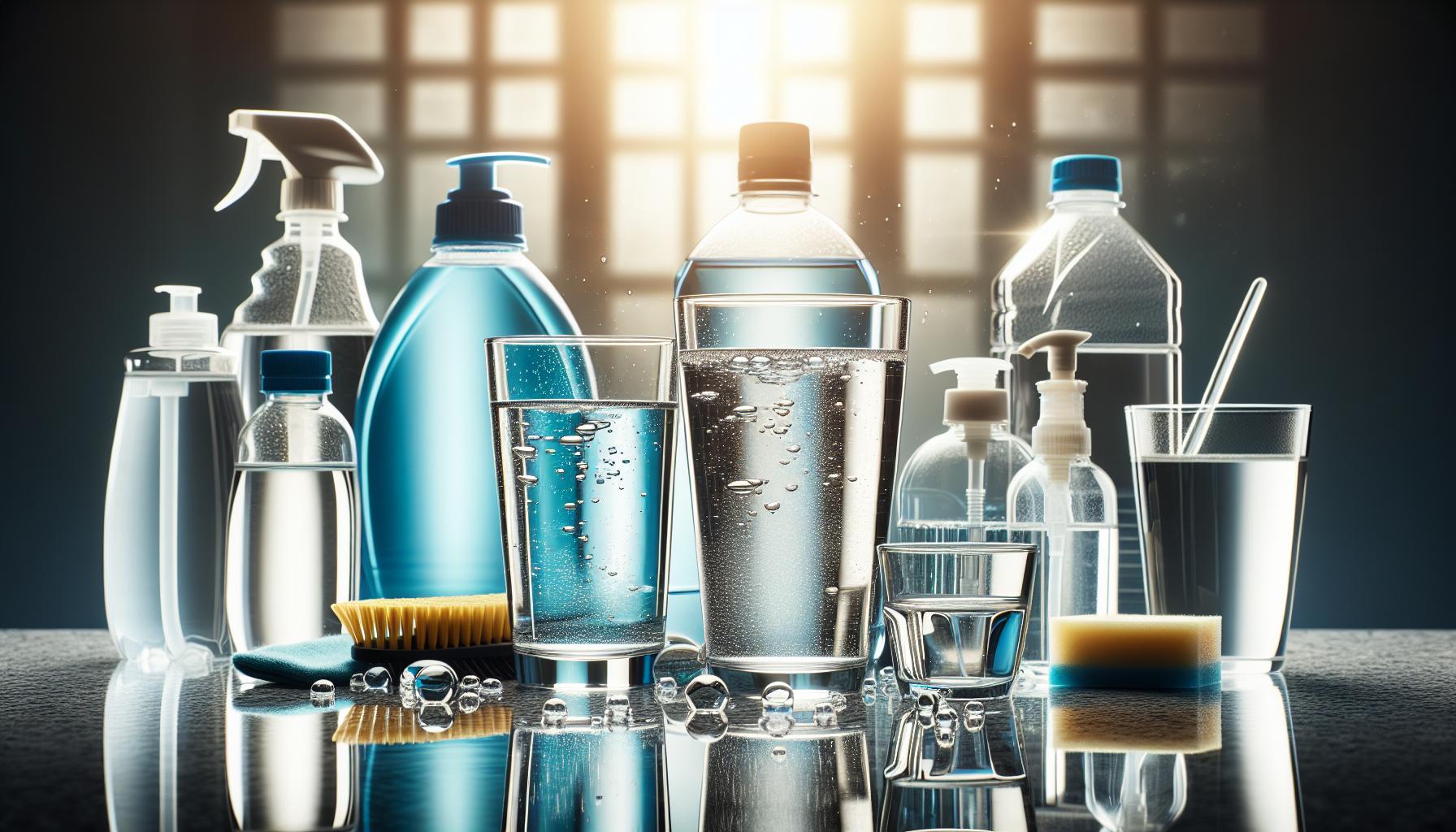
Tips for Maintaining Your Granite’s Shine After Cleaning
Maintaining the pristine shine of your granite surfaces after cleaning is essential for both aesthetics and longevity. When you invest time and effort into removing hard water stains, it’s critical to protect that shine from dulling due to everyday wear and tear. With a few smart habits and the right products, you can keep your granite looking brand new, ensuring that it remains a stunning focal point in your home.
Regular Cleaning Practices
One of the most effective ways to maintain your granite’s shine is through consistent cleaning practices. Instead of using harsh chemicals, opt for a gentle pH-balanced stone cleaner. This helps to eliminate day-to-day dirt and grime without stripping away the protective sealant on your granite. Consider establishing a routine where you clean your countertops daily with a soft microfiber cloth and a suitable cleaner, which will also help remove potential water stains before they develop.
Sealing Your Granite
To further enhance the shine of your granite and protect it from stains, regular sealing is crucial. Sealing creates a barrier against spills and moisture, preventing hard water stains from taking hold. Most granite surfaces should be resealed every 6 to 12 months, depending on usage and exposure to moisture. Investing in a high-quality granite sealer can make a significant difference in the longevity of your shine.
Avoiding Staining Agents
Certain substances can lead to hard water stains if they are left on the granite surface for too long. It’s advisable to promptly wipe away spills from coffee, wine, or acidic foods, as these can etch the surface and dull its shine. Additionally, keep your granite dry by ensuring that items like glassware or wet dishes are promptly removed, as stagnant water can lead to unsightly stains.
| Tip | Details |
|---|---|
| Cleaning Routine | Use pH-balanced stone cleaners and microfiber cloths daily. |
| Regular Sealing | Seal granite surfaces every 6 to 12 months. |
| Immediate Spill Cleanup | Wipe spills promptly to prevent stains and etching. |
By incorporating these practices into your maintenance routine, you’ll not only eliminate the fear of how to get rid of hard water stains on granite but also ensure that your surfaces retain their beautiful shine for years to come. Regular attention and care will make a world of difference in preserving your granite’s exquisite appearance.
Natural Remedies vs. Chemical Solutions: What Works Best?
Whether you’re facing pesky hard water stains on your granite surfaces or simply looking to restore their shine, the debate between using natural remedies and chemical solutions has never been more relevant. Many homeowners are increasingly leaning towards the former, intrigued by the potential benefits of eco-friendly methods that can effectively clean without the harsh effects of synthetic chemicals.
Natural Remedies: Gentle Yet Effective
Natural solutions often utilize common household items that not only tackle hard water stains but also protect the integrity of granite. For instance, a mix of equal parts white vinegar and water can gradually dissolve mineral deposits without the corrosive potential of more aggressive chemical cleaners. Here are some other popular natural remedies:
- Baking Soda Paste: Combine baking soda with water to form a paste; apply it to the stains, let it sit for a few minutes, then scrub gently and rinse.
- Lemon Juice: The acidity in lemon can help to break down stains and leave a fresh scent.
- Olive Oil and Vinegar Spray: A mixture of these two can create a natural polish that enhances the shine of your granite surfaces.
These alternatives not only provide effective cleaning but also minimize environmental impact, making them more appealing to those looking to maintain a sustainable home. Plus, incorporating these solutions requires minimal effort and can be done using items that are typically readily available in the kitchen.
Chemical Solutions: Quick but Potentially Harmful
On the flip side, commercial cleaners specifically designed for granite often deliver immediate results possibly due to their powerful chemical compositions. These products can effectively remove stubborn hard water stains in a shorter period, making them attractive for busy households. However, caution is paramount; many of these cleaners can contain harsh substances that may dull the surface over time or lead to other undesirable effects, such as etching.
| Pros of Chemical Solutions | Cons of Chemical Solutions |
|—————————|—————————|
| Quick and effective | Can damage surfaces |
| Designed for granite | May contain harsh chemicals|
| Easy to find | Not eco-friendly |
Choosing the best approach depends on your priorities—whether you value immediate results, the safety of your surface and environment, or cost-effectiveness. As awareness grows around the benefits of natural remedies, more people are discovering that effective solutions to get rid of hard water stains on granite are achievable with simple, non-toxic ingredients. This multiplier effect not only aids in restoring shine but also contributes to a healthier household environment.
Emphasizing safe and effective solutions, whether natural or chemical, ensures that your granite remains stunning and protected, allowing your surfaces to maintain their appeal for years to come.
Preventive Measures to Avoid Future Hard Water Build-Up
Keeping granite surfaces pristine and free from hard water build-up is essential for maintaining their beauty and longevity. Many homeowners often overlook how simple changes in their routine can significantly reduce the formation of hard water stains. By proactively managing your approach to cleaning and maintenance, you can ensure that your granite remains shiny and vibrant, minimizing the need for intensive restoration procedures later on.
Effective Cleaning Routines
One of the simplest yet most effective preventive measures is to establish a regular cleaning routine that targets wet areas. After using sinks, countertops, or any granite surfaces, be sure to dry them promptly. This small but crucial step helps to prevent hard water from settling and forming unsightly stains. You can use a soft cloth or paper towel to wipe down these surfaces, ensuring they are left dry after each use.
Utilize Water Softening Solutions
Installing a water softener can be a game-changer in the battle against hard water stains. A water softener reduces the mineral content in your water, which significantly lessens the risk of deposits building up on your granite surfaces. This not only protects the appearance of your granite but can also extend the lifespan of other appliances and plumbing fixtures in your home.
Routine Maintenance
It’s also beneficial to periodically flush your plumbing fixtures and appliances, such as dishwashers and washing machines, with hot water. This helps clear out any built-up sediment that can cause hard water stains. Additionally, consider a monthly application of a granite-specific cleaner that includes sealer properties. This can help create a protective barrier that further prevents staining.
Adopt Smart Usage Habits
Incorporating some smart usage habits can further mitigate the risk of hard water stains. For example, when using vinegar or acidic cleaners, ensure they aren’t left to sit on granite surfaces for an extended period, as they can damage the stone. Instead, opt for pH-balanced cleaners specifically formulated for granite care.
By putting these strategies into practice, homeowners can effectively reduce the occurrence of hard water stains on granite surfaces, ensuring that their countertops and fixtures remain in top-notch condition. Implement these preventive measures today and enjoy the long-term benefits of a beautiful, stain-free home.
When to Seek Professional Help for Stubborn Stains
When it comes to tackling stubborn stains, particularly hard water marks on granite surfaces, knowing when to call in a professional is crucial. While many stains can be managed with homeowner techniques and store-bought cleaners, some situations warrant expert intervention, especially if the damage is extensive or the stains persist despite your best efforts. For instance, if you’ve tried multiple stain-removal methods, such as vinegar, baking soda, or specialized granite cleaners, and the stains remain, it’s time to consider reaching out to a professional.
Signs You Should Seek Help
Recognizing the signs that it’s time to consult an expert can save you time and prevent further damage to your surfaces. Here are some key indicators:
- Persistent Stains: If the hard water stains are still visible after repeated cleaning attempts, a professional may have access to stronger cleaning solutions and specialized tools.
- Etching or Damage: If you notice etching (a dull mark on the surface) along with hard water stains, this could indicate that the sealant has worn away, making it necessary for a professional to assess and restore the integrity of the granite.
- Time Constraints: If the stains have become a part of your daily life and you’re pressed for time, it’s often more efficient to hire someone who can restore the shine quickly.
- Worried About Damage: If you’re concerned about using harsh chemicals that might damage your granite, it’s wise to let a professional handle the situation.
Choosing the Right Professional Service
When selecting a professional service for stain removal, consider reputable companies that specialize in granite care. Look for those that offer a guarantee on their work and check reviews to ensure they have a proven track record. Many experienced experts use advanced techniques like glass bead blasting or diamond polishing to remove deep stains without harming the stone. Additionally, these professionals can apply high-quality sealants that protect your surfaces from future stains, helping you maintain that pristine look you’ve been striving for.
Ultimately, if achieving a flawless finish on your granite surfaces seems elusive, don’t hesitate to seek professional help. They not only have the know-how to get rid of hard water stains effectively but can also restore the shine that makes your granite look magnificent.
Faq
How to Get Rid of Hard Water Stains on Granite? Restore the Shine?
To get rid of hard water stains on granite, start by using a cleaner specifically formulated for natural stone. You can also create a paste with baking soda and water. Apply it to the stains, let it sit, then scrub gently and rinse.
Regular cleaning with the appropriate products is essential to prevent the buildup of hard water stains. Over time, if stains linger, using a commercial cleaner like Bar Keepers Friend can be effective. Always test any cleaner on a small area first to ensure it doesn’t damage the surface.
What causes hard water stains on granite?
Hard water stains on granite are caused by minerals, primarily calcium and magnesium, found in tap water. When the water evaporates, it leaves these deposits behind, creating unsightly spots.
Understanding what causes these stains can help you mitigate them. Regularly wiping down your granite surfaces after use with a soft cloth can significantly reduce the chances of stain buildup. Additionally, using a water softener may help alleviate hard water issues in your home.
Can I use vinegar to clean hard water stains on granite?
No, using vinegar on granite is not recommended, as it can damage the stone. Vinegar is acidic and can etch the surface, making stains worse.
Instead, opt for a pH-neutral cleaner designed for granite. If you prefer natural solutions, baking soda combined with water can effectively lift stains without harming the surface. Remember to always avoid acidic solutions when dealing with granite.
Why does hard water stain my granite surfaces?
Hard water stains your granite due to the high mineral content in your water. When water splashes onto the granite and dries, it leaves behind these mineral deposits.
To avoid this, consider wiping up spills promptly. Regular maintenance, such as sealing your granite countertops every few years, can also help protect against staining. Additionally, using a countertop protector can further minimize water damage.
What is a poultice, and how does it help with hard water stains on granite?
A poultice is a paste made from absorbent materials and a solvent, often used to draw out stains from porous surfaces like granite. It can effectively treat hard water stains.
To create a poultice, mix baking soda with water until it forms a thick paste. Apply it over the stain, cover it with plastic wrap, and let it sit for several hours or overnight. This method can help lift stubborn stains and restore the shine to your granite.
Can I prevent hard water stains on my granite surfaces?
Yes, preventing hard water stains on granite is possible through simple maintenance practices. Regularly clean your countertops with a soft cloth and a granite-safe cleaner.
Also, consider using coasters for drinks and drying surfaces after spills. This proactive approach can significantly reduce the occurrence of stains and keep your granite looking pristine.
What is the best commercial cleaner for hard water stains on granite?
One of the best commercial cleaners for hard water stains on granite is Bar Keepers Friend. It effectively cleans mineral deposits without damaging the surface.
When using any commercial cleaner, always follow the manufacturer’s instructions and test a small area first. This step ensures that the cleaner will not harm your granite and provides the desired results.
Concluding Remarks
In conclusion, getting rid of hard water stains on granite doesn’t have to be a daunting task. By regularly cleaning your countertops with gentle methods such as vinegar and baking soda, you can effectively tackle those stubborn stains while maintaining the integrity of your granite surfaces. If the stains persist, consider using a commercial cleaner like Bar Keepers Friend, and remember that when your granite no longer beads water, it might be time for a professional resealing.
Don’t let hard water stains dull the beauty of your granite; by following these simple techniques, you can restore that luxurious shine and keep your counters looking their best. For further tips and tricks on maintaining your home, continue exploring our resources and learn how to make your cleaning routine even more efficient!

